The history of Slovenia chronicles the period of the Slovenian territory from the 5th century BC to the present. In the Early Bronze Age, Proto-Illyrian tribes settled an area stretching from present-day Albania to the city of Trieste. The Slovenian territory was part of the Roman Empire, and it was devastated by the Migration Period's incursions during late Antiquity and the Early Middle Ages. The main route from the Pannonian plain to Italy ran through present-day Slovenia. Alpine Slavs, ancestors of modern-day Slovenians, settled the area in the late 6th Century AD. The Holy Roman Empire controlled the land for nearly 1,000 years. Between the mid-14th century through 1918 most of Slovenia was under Habsburg rule. In 1918, most Slovene territory became part of the Kingdom of Serbs, Croats, and Slovenes, and in 1929 the Drava Banovina was created within the Kingdom of Yugoslavia with its capital in Ljubljana, corresponding to Slovenian-majority territories within the state. The Socialist Republic of Slovenia was created in 1945 as part of federal Yugoslavia. Slovenia gained its independence from Yugoslavia in June 1991, and today it is a member of the European Union and NATO.
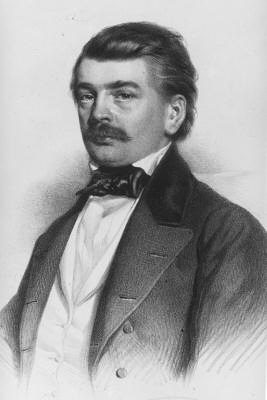
Franz Miklosich was a Slovenian philologist and rector of the University of Vienna.

Johann Jakob Scheuchzer was a Swiss physician and natural scientist born in Zürich. His most famous work was the Physica sacra in four volumes, which was a commentary on the Bible and included his view of the world, demonstrating a convergence of science and religion. It was richly illustrated with copperplate etchings and came to be called the Kupfer-Bibel or "Copper Bible".

Friedrich Wilhelm Joseph Schelling, later von Schelling, was a German philosopher. Standard histories of philosophy make him the midpoint in the development of German idealism, situating him between Johann Gottlieb Fichte, his mentor in his early years, and Georg Wilhelm Friedrich Hegel, his one-time university roommate, early friend, and later rival. Interpreting Schelling's philosophy is regarded as difficult because of its evolving nature.

The Slovenes, also known as Slovenians, are a South Slavic ethnic group native to Slovenia, and adjacent regions in Italy, Austria and Hungary. Slovenes share a common ancestry, culture, history and speak Slovene as their native language. According to ethnic classification based on language, they are closely related to other South Slavic ethnic groups, as well as more distantly to West Slavs.
Günther Storck was a Traditionalist Catholic bishop from Germany. He was ordained to the priesthood on 21 September 1973 by Blasius Kurz, Roman Catholic apostolic prefect of Yungchow, China, and consecrated – without permission of Pope John Paul II – a bishop on 30 April 1984, in Etiolles, France, by sedeprivationist bishop Guerard des Lauriers.

Jacob Christian Schäffer, alternatively Jakob, was a German dean, professor of theology, botanist, mycologist, entomologist, ornithologist and inventor. He was a theologian and teacher at Ratisbon. His work in natural sciences includes writing comprehensive and illustrated volumes on plants, fungi, birds, and insects, proposing new classification systems, and maintaining a museum of curiosities. Schäffer also experimented with electricity, colours, and optics, manufactured prisms and lenses, and invented an early washing machine and other practical devices. In the paper industry, he conducted experiments and published findings on alternate sources for paper production. He made studies of minute organisms without access to advanced microscopes and wrote a book on Daphnia.

Jože Pučnik was a Slovenian public intellectual, sociologist and politician. During the communist regime of Josip Broz Tito, he was one of the most outspoken Slovenian critics of dictatorship and lack of civil liberties in SFR Yugoslavia.
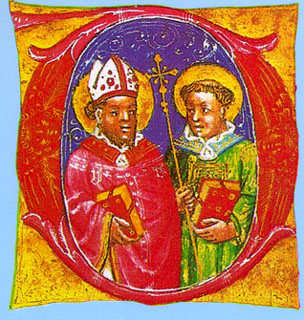
Hermagoras of Aquileia is considered the first bishop of Aquileia, northern Italy. Christian tradition states that he was chosen by Mark to serve as the leader of the nascent Christian community in Aquileia, and that he was consecrated bishop by Peter. Hermagoras and his deacon Fortunatus evangelized the area but were eventually arrested by Sebastius, a representative of Nero. They were tortured and beheaded.

Edvard Ravnikar was a Slovenian architect.
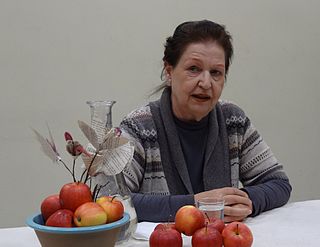
Alenka Puhar is a Slovenian journalist, author, translator, and historian. In 1982, she wrote a groundbreaking psychohistory-inspired book "The Primal Text of Life" about the 19th century social history of early childhood in Slovene Lands, then part of the Austro-Hungarian Empire. The book was in 2010 the subject of a television documentary that was in 2010 televised on the national RTV Slovenija. Her grandfather was the photographer and inventor Janez Puhar, who invented a process for photography on glass.
Ivo Urbančič was a Slovenian philosopher. He is considered by many to be one of the fathers of the phenomenological school in Slovenia.
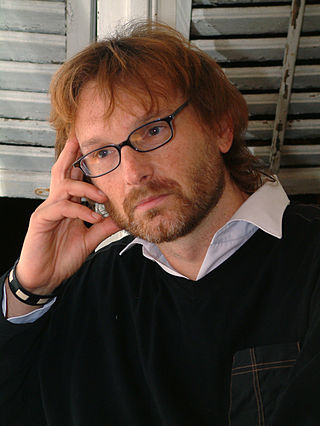
Mario Kopić is a philosopher, author and translator. His main areas of interest include: the history of ideas, the philosophy of art, the philosophy of culture, phenomenology and the philosophy of religion.
Dušan Pirjevec, known by his nom de guerre Ahac, was a Slovenian Partisan, literary historian and philosopher. He was one of the most influential public intellectuals in post–World War II Slovenia.

Tine Hribar is a Slovenian philosopher and public intellectual, notable for his interpretations of Heidegger and his role in the democratization of Slovenia between 1988 and 1990, known as the Slovenian Spring. He is the husband of author, essayist and political commentator Spomenka Hribar.

Gerhard J. Bellinger was a German theologian, university professor of the New Testament, the history of Christianity, and the history of religions at Technical University of Dortmund.
Ingolf Ulrich Dalferth is a philosopher of religion and theologian. His work is regarded as being on the methodological borderlines between analytic philosophy, hermeneutics and phenomenology, and he is a recognized expert in issues of contemporary philosophy, philosophy of religion, and philosophy of orientation.
Gorazd Kocijančič is a freelance Slovene philosopher, poet and translator. Kocijančič is well known for his translation of the entire corpus of Plato's work into Slovene.
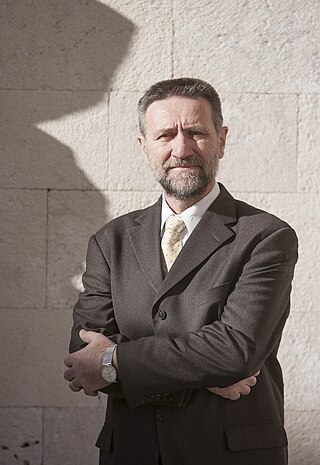
Pavo Barišić is a Croatian philosopher and politician who served as the Minister of Science and Education in the Cabinet of Andrej Plenković from 19 October 2016 until 9 June 2017. He publishes in the field of philosophy of law, politics and democracy, history of philosophy, and bioethics. He is a member of Croatian Democratic Union.
Ulrich L. Lehner is the Warren Foundation Professor of Theology at the University of Notre Dame. He is a trained theologian and historian.













